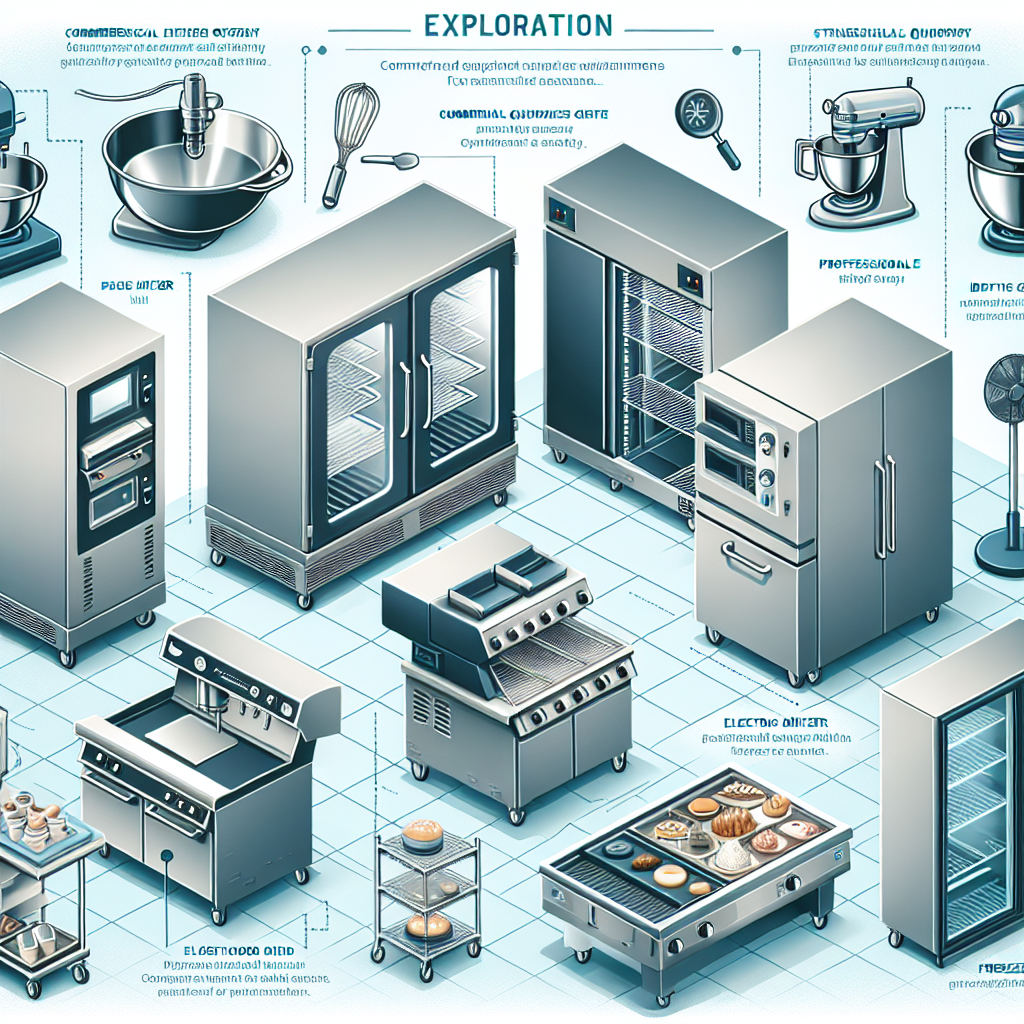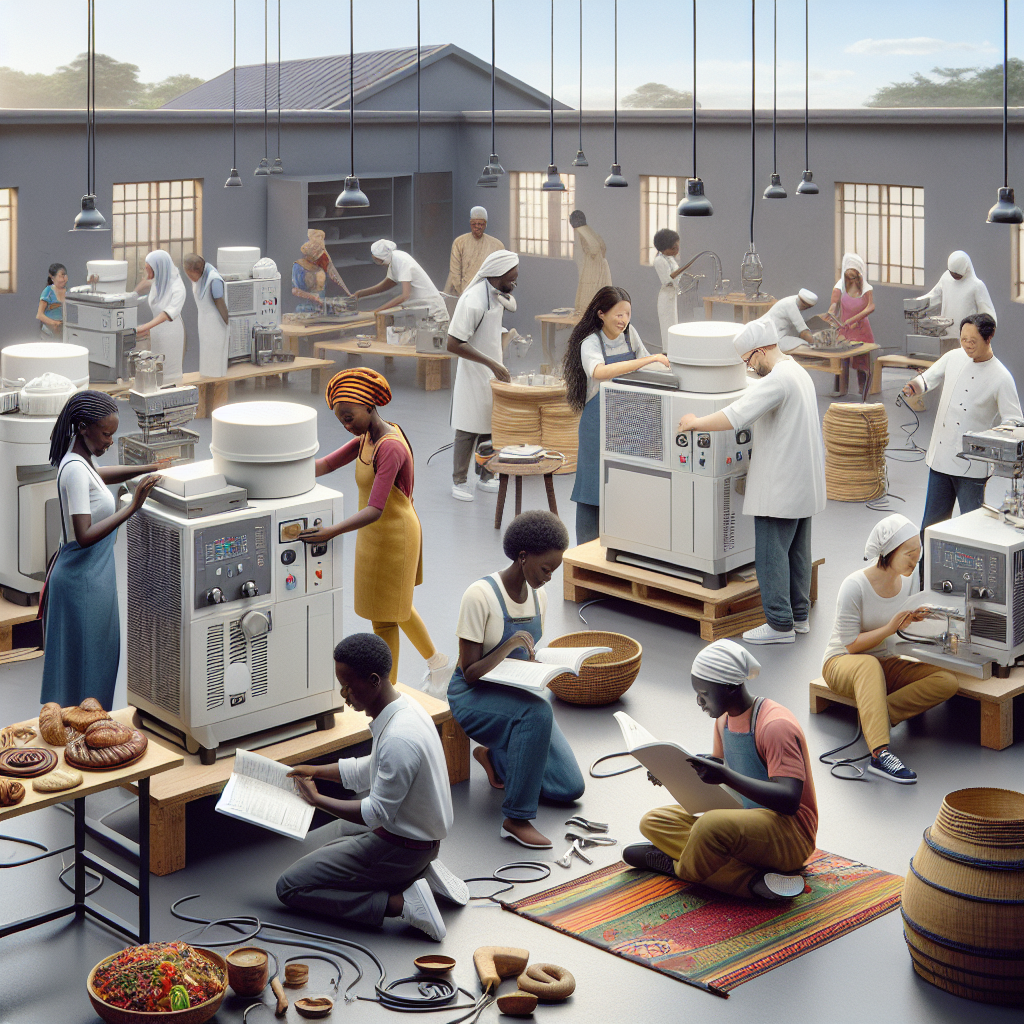
- Express delivery and free returns within 30 days
- hello@zicostar.com
- Chat on Whatsapp
Industrial food equipment has become an essential part of the food industry in Nigeria. With the growing demand for processed and packaged food products, businesses are realizing the importance of investing in high-quality equipment to streamline their operations and meet the needs of their customers. In this article, we will explore the benefits of using industrial food equipment in Nigeria and how it can help businesses thrive in this competitive market.
One of the primary benefits of using industrial food equipment is increased productivity. Traditional methods of food preparation and processing can be time-consuming and labor-intensive. However, with the right equipment, businesses can automate various tasks, such as chopping, mixing, and packaging, which significantly reduces the time and effort required. This increased efficiency allows businesses to produce larger quantities of food products in a shorter period, meeting the demands of a growing customer base.
Another advantage of industrial food equipment is improved food safety and hygiene. In a country like Nigeria, where foodborne illnesses are a significant concern, it is crucial for businesses to prioritize food safety. Industrial food equipment is designed to meet strict hygiene standards, with features such as stainless steel construction and easy-to-clean surfaces. This reduces the risk of contamination and ensures that the food products meet the highest quality standards, giving consumers peace of mind.
Cost savings are also a significant benefit of using industrial food equipment. While the initial investment may seem high, businesses can save money in the long run. By automating various processes, businesses can reduce labor costs and minimize the risk of human error. Additionally, industrial food equipment is designed to be energy-efficient, reducing utility bills and overall operating costs. These cost savings can be reinvested into the business, allowing for further growth and expansion.
Furthermore, industrial food equipment offers businesses the flexibility to diversify their product offerings. With the right equipment, businesses can easily adapt to changing consumer preferences and market trends. For example, if there is a sudden increase in demand for a particular food product, businesses can quickly scale up production without compromising on quality. This flexibility allows businesses to stay competitive and seize new opportunities in the market.
In addition to these benefits, industrial food equipment also helps businesses maintain consistency in their food products. With automated processes, businesses can ensure that each batch of food is prepared and packaged in the same way, resulting in consistent taste, texture, and appearance. This consistency is crucial for building a loyal customer base and establishing a strong brand reputation.
In conclusion, the benefits of using industrial food equipment in Nigeria are numerous. From increased productivity and improved food safety to cost savings and flexibility, businesses can gain a competitive edge by investing in high-quality equipment. As the food industry continues to grow and evolve, it is essential for businesses to stay ahead of the curve and embrace the advantages that industrial food equipment offers. By doing so, businesses can thrive in this competitive market and meet the ever-changing demands of their customers.

Starting a food business in Nigeria can be an exciting and profitable venture. However, it is important to have the right industrial food equipment to ensure the success of your business. In this article, we will discuss the essential industrial food equipment that you need to get started with your food business in Nigeria.
One of the most important pieces of equipment that you will need is a commercial refrigerator. This is essential for storing perishable items such as meat, dairy products, and vegetables. A commercial refrigerator will help you maintain the freshness and quality of your ingredients, ensuring that your customers are satisfied with the food you serve.
In addition to a commercial refrigerator, you will also need a commercial freezer. This is necessary for storing frozen items such as ice cream, frozen meat, and frozen vegetables. A commercial freezer will allow you to offer a wide variety of frozen products to your customers, increasing the profitability of your business.
Another essential piece of equipment is a commercial oven. This is necessary for baking bread, pastries, and other baked goods. A commercial oven will ensure that your baked goods are cooked evenly and to perfection, delighting your customers with delicious treats.
To prepare and cook food efficiently, you will also need a commercial stove. This will allow you to cook multiple dishes at once, saving you time and increasing your productivity. A commercial stove will also provide you with precise temperature control, ensuring that your food is cooked to perfection every time.
To ensure the safety and hygiene of your food, you will need a commercial dishwasher. This will allow you to clean and sanitize your dishes, utensils, and cooking equipment quickly and efficiently. A commercial dishwasher will help you maintain high standards of cleanliness in your kitchen, ensuring that your customers are confident in the quality of your food.
To store and display your food products, you will need commercial shelving and display units. These will allow you to organize your ingredients, utensils, and finished products, making it easy for you to find what you need when you need it. Commercial shelving and display units will also help you showcase your food products to attract customers and increase sales.
Lastly, you will need a commercial food processor. This will help you prepare ingredients quickly and efficiently, saving you time and effort in the kitchen. A commercial food processor will allow you to chop, slice, and blend ingredients with ease, ensuring that your food is prepared to perfection.
In conclusion, starting a food business in Nigeria requires the right industrial food equipment. From commercial refrigerators and freezers to ovens, stoves, dishwashers, shelving, display units, and food processors, each piece of equipment plays a crucial role in the success of your business. By investing in the right equipment, you can ensure that your food is of the highest quality, delighting your customers and setting your business up for success.
Industrial food equipment plays a crucial role in the food processing industry in Nigeria. Whether you are starting a new food business or looking to upgrade your existing equipment, choosing and maintaining industrial food equipment requires careful consideration. In this article, we will provide you with some valuable tips to help you get started with industrial food equipment in Nigeria.
First and foremost, it is essential to understand your specific needs and requirements before investing in any industrial food equipment. Consider the type of food you will be processing, the volume of production, and the level of automation you desire. This will help you narrow down your options and choose the most suitable equipment for your business.
When selecting industrial food equipment, it is crucial to prioritize quality and reliability. Look for reputable manufacturers or suppliers who have a proven track record in the industry. High-quality equipment will not only ensure efficient and consistent production but also minimize the risk of breakdowns and costly repairs.
Another important factor to consider is the availability of spare parts and after-sales support. Opt for equipment that has readily available spare parts in Nigeria or can be easily sourced from nearby countries. Additionally, choose suppliers who offer comprehensive after-sales support, including maintenance services and technical assistance. This will help you address any issues promptly and minimize downtime.
In Nigeria, where power supply can be unreliable, it is crucial to consider the energy efficiency of the equipment. Look for equipment that is designed to minimize energy consumption without compromising on performance. Energy-efficient equipment not only reduces your operational costs but also contributes to a more sustainable and environmentally friendly operation.
Maintenance is a critical aspect of ensuring the longevity and optimal performance of industrial food equipment. Regular cleaning and maintenance routines should be established and followed diligently. This includes cleaning, lubricating, and inspecting the equipment regularly. It is also important to train your staff on proper handling and maintenance procedures to prevent any damage or misuse.
Additionally, consider investing in preventive maintenance programs offered by manufacturers or authorized service providers. These programs typically include scheduled inspections, routine maintenance, and timely repairs. By proactively addressing any potential issues, you can avoid costly breakdowns and extend the lifespan of your equipment.
Furthermore, it is essential to keep up with the latest technological advancements in the industry. New technologies and innovations can significantly improve the efficiency and productivity of your food processing operations. Stay informed about the latest trends and developments, and consider upgrading your equipment when necessary to stay competitive in the market.
Lastly, it is important to comply with all relevant regulations and standards when using industrial food equipment in Nigeria. Ensure that your equipment meets the required safety and hygiene standards set by regulatory authorities. This will not only protect your business from legal issues but also ensure the safety and quality of your products.
In conclusion, getting started with industrial food equipment in Nigeria requires careful consideration and planning. Understand your specific needs, prioritize quality and reliability, consider energy efficiency, establish regular maintenance routines, stay updated with technological advancements, and comply with regulations. By following these tips, you can make informed decisions and ensure the success of your food processing business in Nigeria.

How to Optimize Efficiency and Productivity with the Right Industrial Food Equipment When it comes to running a successful food business, having the right industrial

Industrial food equipment has become an essential part of the food industry in Nigeria. With the growing demand for processed and packaged food products, businesses
